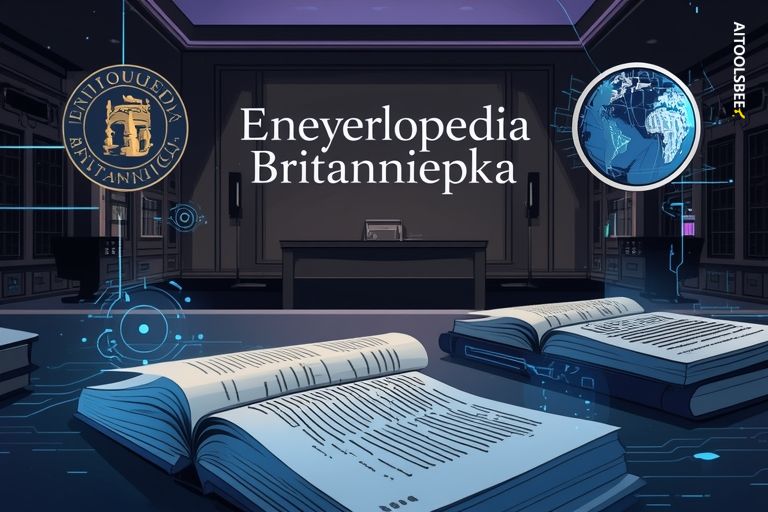
Britannica and Merriam-Webster Sue Perplexity AI
Encyclopedia Britannica and Merriam-Webster have initiated legal action against AI startup Perplexity AI, alleging copyright infringement, trademark violations, and diversion of internet traffic. The lawsuit was filed in a federal court in New York on Tuesday.
The complaint claims that Perplexity’s 'answer engine' systematically copies content from Britannica and Merriam-Webster websites without permission. The AI tool is accused of plagiarizing works and depriving the companies of visitors and revenue.
Further allegations include trademark infringement, with claims that Perplexity associates Britannica and Merriam-Webster names with inaccurate AI-generated results, misleading users about the companies' involvement.
Evidence presented includes screenshots of Perplexity's definition of plagiarism, mirroring Merriam-Webster's entry.
The lawsuit argues that Perplexity's 'answer engine' exploits publishers' investments by summarizing copyrighted articles directly, unlike traditional search engines that direct traffic to original sources.
Perplexity AI describes its service as an advanced search tool that condenses information from 'top-tier sources' into conversational summaries.
Britannica and Merriam-Webster assert that this approach 'cannibalizes traffic' by reproducing material in summaries instead of directing users to original content.
The lawsuit is part of broader legal challenges faced by Perplexity, with other media groups also contesting its use of their content.
News Corp’s Dow Jones and the New York Post have filed similar lawsuits, accusing Perplexity of unauthorized use of published articles. Other outlets, including Forbes and The New York Times, have also raised concerns.
Britannica and Merriam-Webster seek damages and an injunction to prevent Perplexity from using their names in AI-generated outputs.
Perplexity has received funding from notable investors like Amazon founder Jeff Bezos and has partnered with some publishers to test revenue-sharing models.
In August, the startup allocated $42.5 million for revenue sharing with publishers when their content appears on its browser, Comet.
While some organizations have joined Perplexity's ad revenue program, others remain cautious about intellectual property control.
Recently, the World History Encyclopedia launched a Perplexity-powered chatbot utilizing its database of academic sources and articles.

Captures the essence and possibilities of technology within the rapidly evolving world of AI tools.

